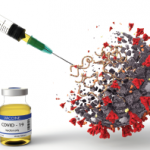I keep this in mind when I mention glucosamine and chondroitin sulfate to patients with osteoarthritis, after they have failed to respond to acetaminophen and NSAIDs. I openly admit that there are good data indicating the supplements do nothing. On the other hand, they are harmless, and some people really believe they help.
I Shall Please
If you took Latin in high school, then you know the word placebo translates to “I shall please.” It seems simple enough to assume a placebo was so named because it represented the physician’s attempt to please the patient with nostrums, knowing full well that no effective therapy existed.
The origin of the word, however, is somewhat more complex. It actually is an abbreviation from the ninth verse of Psalm 116: “placebo Domino in regione vivorum,” which translates to “I will please the Lord in the land of the living.”
How did an expression from a Bible verse come to denote a sugar pill? In the eighth century, Psalm 116 was incorporated into Christian burial rights. The celebrant would recite the first eight verses, ending with, “For you, Lord, have delivered me from death, my eyes from tears, my feet from stumbling,” and the mourners would respond with the ninth verse.
Perhaps it should not be surprising that this lovely tradition was eventually corrupted. And so it came to pass that random people would descend on funerals, like medical students descending on noon conference, in search of a free meal. To simulate the appearance of a legitimate mourner, they would endlessly recite “placebo Domino in regione vivorum,” in hopes of blending in with the others. Eventually, they came to be known as placebos; gradually, the expression came to refer to anything that simulated something else. It was not until the 16th century that physicians started to use the word in reference to medications.1
The role of the physician is ‘to cure sometimes, to relieve often, to comfort always.’ —Unknown
The Placebo Effect
The placebo occupies a prominent place in the history of medicine in the U.S. Thomas Jefferson wrote, “One of the most successful physicians I have ever known has assured me that he used more bread pills, drops of colored water and powders of hickory ashes than all other medicines put together.”2 Until relatively recently, the prescription of placebos by physicians was considered to be both standard and benign, a way of offering comfort when no other options existed.3


